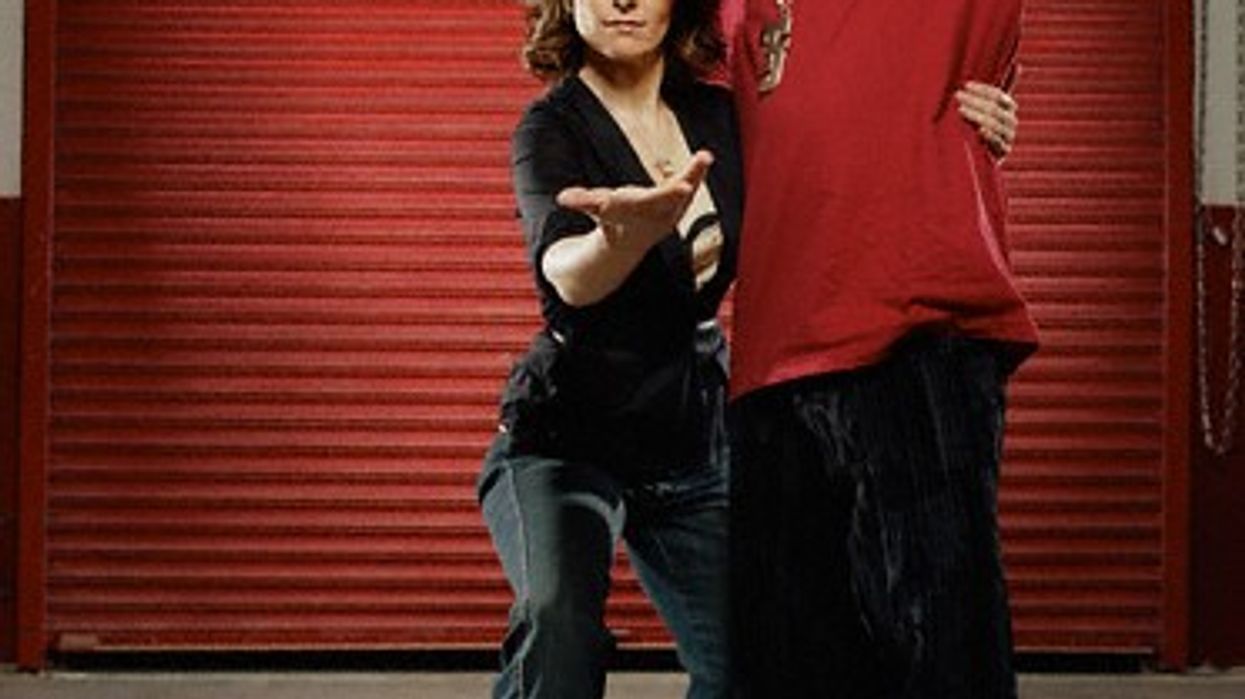When an event is advertised as a student town hall you expect that the people driving the conversation will be, well, students. Last week I had the privilege of speaking at NBC’s Education Nation Student Town Hall hosted by Melissa Harris-Perry. While I was initially thrilled that NBC wanted to involve students in the discussion, my optimism quickly soured.
Half of the "student" town hall was dedicated not to hearing what students had to say, but to venting by various adult journalists and politicians on the challenges affecting education. During the panel discussion portion, students in the audience who wanted to ask questions weren't allowed. Only pre-screened questions were permitted.
The minimal exposure students were given was an insult to our generation. What this boils down to is one simple axiom: NBC does not trust students. They put on a sham "student" town hall and—aside from two panels—students were left out.
The lack of students is emblematic of a larger problem of NBC not including experts with diverse viewpoints on what's happening in education. With sponsors like the University of Phoenix, ExxonMobil, and the Bill & Melinda Gates Foundation, it seems that NBC kowtowed to their corporate backers in their speaker choices. The lineup of speakers tilted heavily toward folks who espouse the corporate education reform dogma of bashing teachers, squeezing profits out of schools, and turning a blind eye toward students. If you disagree, where were progressive, social justice-oriented experts like Diane Ravitch, Howard Gardner, and Linda Darling-Hammond?
For instance, take the parent engagement panel. Though the event was held at the New York City Public Library, there wasn't a single local New York City public school parent included. "The parents in the audience were treated as potted plants, as accessories," says Leonie Haimson, a parent advocate and Executive Director of Class Size Matters.
The audience was instead forced to listen to Michelle Rhee and Joel Klein, two educrats who are only looking out for their own corporate interests. Not only do neither of them "care a fig about parent empowerment," adds Haimson, but "Klein did more than anyone in history to kill it when he was chancellor, by eliminating the power of school leadership teams—made up half of parents and school staff—to make decisions about school-based budgets."
The combination of the lack of genuine interest in the viewpoints of students and the corporate reform-friendly atmosphere meant that when I asked questions about the damaging effects of high-stakes testing, I was ignored and treated like a whiny kid. When I wanted to publicly grill Secretary of Education Arne Duncan about the rise of cheating scandals, teacher turnover, and testing under his reign, I wasn't allowed to speak. And, time and time again, the moderators failed to ask the tough questions. I could very easily infer that few of these moderators were versed in the field.
It's frustrating to imagine how groundbreaking this event could have been. Most of the big-ticket policymakers and education reform celebrities were in town. Provocative pundits were storming the sessions. A presidential candidate decided to show up. And the general American public was glued to their televisions, watching NBC's programming at home. But, because of the narrow viewpoints represented, NBC missed an unprecedented opportunity to move the needle on the education conversation.
Next year, instead of grouping everyone into siloed town halls, the summit should feature all the stakeholders—students, parents, educators, policymakers, and administrators—all at the same table. It should address "student-led ideas, disruptive solutions, and true innovation." Sessions on project-based learning and student-centered learning, changing assessment, and student ethics and cheating should be added. Along with Ravitch, Gardner, and Darling-Hammond, it should include experts doing important thinking and innovative work to ensure schools and students thrive in the 21st century—people like Alfie Kohn, Deborah Meier, Monty Neill, Jerry Mintz, Vicki Abeles, and Larry Rosenstock. Perhaps then we won’t have another year of folks ridiculing the event as "Mis-Education Nation."
Don't get me wrong—I commend NBC's efforts to hoist education onto a national pedestal, but the network deserves the lion's share of the blame for the disaster that unfolded in the halls of the New York City Public Library. Let's hope NBC takes some of these suggestions to heart, so that next year, attendees won't be forced to witness a corporate education circus.









